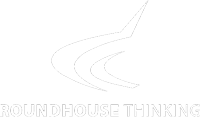6 Essential Qualities you need to become a Leadership Role Model
Leadership is established over time through teaching, learning and experience and is a set of skills acquired, which when combined; equip you with the ability to lead a team to success.
Consider these 6 behaviours to become an effective leader.
• Self-Awareness of your strengths and weaknesses allows you to understand other people and how they perceive you. This in turn increases trust and credibility within your team. It also allows you to implement change effectively within your organisation.
• Listening not only is essential part of communication between you and your team, it also develops trust, enhances motivation and helps detect and solve problems faster.
• Commitment to advance the welfare of employees. Dedicate time to developing your employee’s skills, through coaching, mentoring and training, to help them become better leaders.
• Empathy not only to identify with others but to accept what others contribute to the company.
• Persuasion will influence many stakeholders to follow a course of action. Having influencing skills will assist with organisational change and development.
• Foresight allows leaders to analyse the past to make informed decisions for the future.
Each person embodies at least some leadership qualities; it is how you use and adapt these that determines your success.
Are you looking to develop yourself or your team? We identify skills gaps and integrate training into your business in order to create instant impact and drive results. Learn more.
Don't forget to follow us on Twitter @RHThinking and LinkedIn for more top tips.
So you want to increase your personal impact within the workplace but unsure of where to start? There’s no quick fix, however developing new habits will help create firm foundations. Why not take a look at our five top tips to help you get started!
Believe in yourself
It’s important to be confident, if you don’t believe in yourself, why should anyone else? Remember to get your point across clearly and confidently, to ensure your message is clear and concise.
A simple tip to help you communicate more effectively is the ‘Rule of Three’. This powerful tool, used by the likes of Julius Caesar, Abraham Lincoln and Steve Jobs in their speeches, breaks your message into three clear points, which are easy for listeners to understand and recall.
Remember to set very clear goals. Goals become the centre of your focus, in which you can concentrate your efforts on.
Do you know yourself? Confident people tend to have a very good understanding of their self-awareness. 360 degree feedback sessions are a fantastic way to find out about how you impact on the people you work with. 360 degree feedback is a process in which employees receive confidential, anonymous feedback from the people who work around them.
Assertiveness
Do you have the ability to say ‘No’? If not, you may need to improve on your assertiveness skills. Greater workplace impact requires you to be assertive. Ensure you know the difference between assertive, aggressive, passive and passive aggressive behaviours.
Assertive people have no problem stating what they want and stating it very clearly. Being assertive enables you to provide good feedback to colleagues.
Influencing and persuading
The ability to influence people is a vital skill. It allows you to help people to do better and encourages them to see things from your point of view.
Make sure you demonstrate interest in others. In order to make a good impression, you need to show an active interest in the person you're talking to. Listen to what they are saying and just remember a good listener learns a lot from people.
Address people by name. People are more likely to respond when they hear their name as the use of their name makes a message more personal to them.
Stay relevant
Industries are foreverchanging, so it’s a good idea to keep learning. Stay up-to-date with the latest changes and trends, and don’t be shy to let people know you’re doing your research too.
It also pays to learn new things, develop new skills, and to expand your knowledge.
And remember...
You are your own brand. After all, you have certain values, things that you care about and the way that you work. Your personal brand is how you appear to the world so make it count.
For more helpful tips, please follow @RHThinking!
When it comes to your success, Emotional Intelligence is just as important as intellectual intelligence. Otherwise known as EI, Emotional Intelligence can help you build stronger working relationships, succeed at work and achieve career goals.
What does EI affect?
EI affects how we manage behaviour, build relationships, handle conflict and make personal decisions that achieve positive results.
What separates top performers from weak performers in the workplace?



